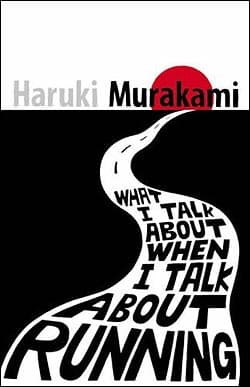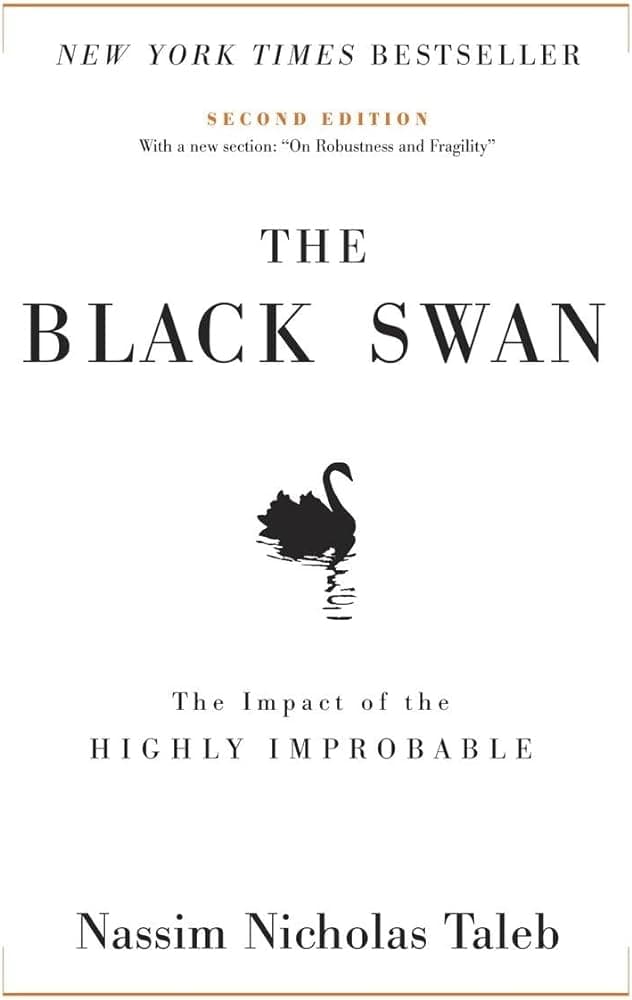What I Talk About When I Talk About Running vs. The Black Swan by Nassim Nicholas Taleb
What I Talk About When I Talk About Running
What I Talk About When I Talk About Running is a memoir by Haruki Murakami where he talks about two things that define a big part of his life: running and writing. Murakami didn’t always plan on being a novelist. He was running a jazz bar in his twenties when, while watching a baseball game, he suddenly thought, “I could write a novel.” He gave it a shot, it worked out, and he eventually sold his bar to focus on writing full-time. But sitting at a desk all day, smoking and not moving much, wasn’t doing his health any good. That’s when he picked up running. For Murakami, running is more than just exercise—it’s part of his routine and, in a way, a metaphor for writing. Both take endurance. Both are long hauls where you push yourself day after day, even when you don’t feel like it. The book follows him as he trains for marathons, competes in triathlons, and grapples with the slow decline of his physical abilities as he ages. He talks a lot about acceptance—accepting getting older, accept...
The Black Swan by Nassim Nicholas Taleb
Skin in the Game may be nice but The Black Swan is the OG Nicholas Taleb. Read this book to learn how to think and avoid biases and reread at least once very couple of years.


Reviews
Reviewed on 2/28/2024
I read this book when I first started running long distance. I was living in Chiang Mai and I'd go this huge park a couple of times a week and just run loops around the lake. At the end of my run I'd grab a milk tea and a banana bread from a local coffee shop and just read a few pages. Great memories of many chill evenings, running and reading about running.
Reviews
| Item | Votes | Upvote |
|---|---|---|
| Easy read | 1 | |
| Motivating | 1 | |
| Peaceful | 1 |
| Item | Votes | Upvote |
|---|---|---|
| No cons yet, would you like to add one? | ||
| Item | Votes | Upvote |
|---|---|---|
| No pros yet, would you like to add one? | ||
| Item | Votes | Upvote |
|---|---|---|
| No cons yet, would you like to add one? | ||
Frequently Asked Questions
Whether 'What I Talk About When I Talk About Running' by Haruki Murakami is better than 'The Black Swan' by Nassim Nicholas Taleb depends on what you are looking for in a book. Murakami's book is a reflective, personal account that combines themes of running and writing, making it an easy, motivating, and peaceful read. On the other hand, 'The Black Swan' is an influential work on risk, uncertainty, and human biases, essential for those interested in understanding randomness and avoiding cognitive biases. Choose Murakami's book for a literary, inspirational experience, and Taleb's book for a thought-provoking, analytical read.
'What I Talk About When I Talk About Running' by Haruki Murakami is generally considered more motivational, especially for readers who draw inspiration from personal anecdotes and the perseverance involved in running and writing. The book emphasizes the value of trying hard and not giving up. 'The Black Swan' by Nassim Nicholas Taleb, while intellectually stimulating and insightful, is more focused on understanding complex concepts related to risk and uncertainty rather than providing direct motivational content.
'What I Talk About When I Talk About Running' is a memoir by Haruki Murakami that explores the intertwined themes of running and writing. Murakami shares his journey from running a jazz bar to becoming a novelist, detailing how running became a crucial part of his life and a metaphor for his writing process. The book reflects on endurance, acceptance of aging, and the highs and lows of both running and writing.
Pros of 'What I Talk About When I Talk About Running' include its easy readability, motivating content, and the peaceful tone of Murakami's writing. There are no cons listed for this book, indicating that readers generally find it to be a positive experience.
Haruki Murakami is a renowned Japanese author known for his unique blend of magical realism, surrealism, and themes of loneliness and existentialism. He gained international fame with novels such as 'Norwegian Wood' and 'Kafka on the Shore.' In 'What I Talk About When I Talk About Running,' he shares personal insights into his life as a writer and runner.
The writing style of 'What I Talk About When I Talk About Running' is straightforward and conversational, as if Murakami is sharing his thoughts over coffee. He often includes personal anecdotes and reflections, making the narrative relatable and engaging for readers.
In 'What I Talk About When I Talk About Running,' memorable moments include Murakami's experiences training for marathons, his reflections on aging and acceptance, and the simple joys of running, such as the satisfaction of finishing a race and enjoying a cold beer afterward. His vivid descriptions of running the original marathon route in Greece also stand out.
'The Black Swan' by Nassim Nicholas Taleb explores the concept of unpredictable and rare events that have a massive impact on the world. The book delves into how these events are often rationalized in hindsight, despite being unexpected. It encourages readers to understand and embrace uncertainty, and to recognize the limitations of predictive models and human biases.
Nassim Nicholas Taleb is a Lebanese-American essayist, scholar, statistician, and former trader and risk analyst. He is known for his work on probability, uncertainty, and randomness, and has authored several books including 'The Black Swan,' 'Antifragile,' and 'Skin in the Game.' Taleb's work mainly focuses on the unpredictability of events and how individuals and systems can be robust or even benefit from disorder.
The main themes of 'The Black Swan' by Nassim Nicholas Taleb include the impact of rare and unpredictable events, the flaws of predictive models, human cognitive biases, and the concept of robustness and fragility in systems. Taleb argues that these 'Black Swan' events are often underestimated and can have profound consequences on societies and economies.
You should read 'The Black Swan' by Nassim Nicholas Taleb to gain a deeper understanding of how rare and unpredictable events can shape our world. The book provides valuable insights into recognizing and mitigating biases, improving decision-making under uncertainty, and preparing for the unexpected. It’s a thought-provoking read that challenges conventional wisdom and encourages critical thinking.



















